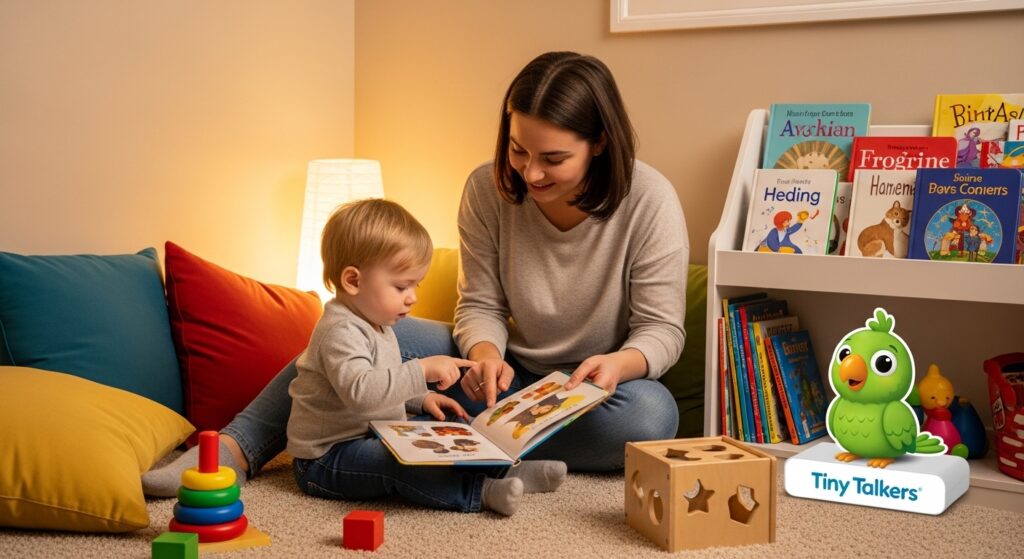Understanding Bilingualism and Toddler Speech Development
As parents, we want to give our children the best possible start in life, and language plays a crucial role in early development. With the increasing globalization of communities, raising a bilingual child is becoming more common. However, it’s natural to wonder if learning two languages might affect a toddler’s speech development.
The Basics of Language Acquisition
Before diving into bilingualism, let’s explore how toddlers typically acquire language. Language development in toddlers generally follows a predictable pattern:
- Babbling Phase: Around 6 to 12 months, babies start to babble, experimenting with sounds and syllables.
- First Words: Between 12 to 18 months, most toddlers say their first words, often simple ones like “mama” or “dada.”
- Language Explosion: Around 18 to 24 months, vocabulary rapidly expands as toddlers begin forming short sentences.
These milestones can vary significantly from child to child, influenced by factors such as exposure to language, interaction with caregivers, and individual differences.
Does Bilingualism Impact Speech Development?
A common concern among parents is whether introducing two languages could delay their child’s speech. It’s important to understand what experts say about this.
Research Findings
-
No Long-Term Delays: Research consistently shows that bilingualism does not cause long-term delays in speech development. While bilingual children might initially mix languages or take slightly longer to speak fluently in both, they typically catch up to their monolingual peers by school age.
-
Cognitive Advantages: Studies indicate that bilingual children often have cognitive advantages, such as improved problem-solving skills and greater mental flexibility. These benefits can outweigh any temporary challenges in early speech development.
-
Language Mixing: It’s common for bilingual toddlers to mix languages, using words from both in the same sentence. This is a normal part of bilingual language development and typically resolves as their vocabulary grows.
Addressing Parental Concerns
Understanding the potential challenges and benefits of bilingualism can help alleviate concerns.
Temporary Speech Delays
Some bilingual children might experience temporary delays in reaching specific language milestones compared to monolingual peers. This is usually due to the increased cognitive load of processing two languages. However, these delays are generally minor and resolve as the child’s language abilities develop.
Language Dominance
Bilingual children may show a preference or dominance in one language, often influenced by the environment and exposure. It’s crucial to provide balanced exposure to both languages if you want your child to develop proficiency in both.
Quality of Language Exposure
The quality and consistency of language exposure are vital. Engaging in meaningful conversations, reading books, and singing songs in both languages can significantly enhance a child’s language development.
Expert Recommendations for Raising a Bilingual Toddler
Experts offer several strategies to support bilingual language development:
-
Consistent Language Use: Consistency is key. Use one language at home and another outside, or assign specific days for each language. This helps toddlers differentiate between the two languages.
-
Rich Language Environment: Create an environment rich in both languages. Engage your child in activities involving both languages, such as reading bilingual books or playing language-based games.
-
Patience and Encouragement: Encourage your child to express themselves, regardless of the language they use. Celebrate their efforts and avoid correcting them excessively, as this can discourage language use.
-
Seek Professional Guidance: If you have concerns about your child’s speech development, consult a speech-language pathologist. They can provide personalized advice and reassurance based on your child’s unique language profile.
The Benefits of Bilingualism
Raising a bilingual child offers numerous advantages that extend beyond language skills:
-
Cultural Awareness: Bilingual children often develop a deeper understanding and appreciation of different cultures, fostering empathy and open-mindedness.
-
Academic Success: Studies suggest that bilingualism can positively impact academic performance, particularly in areas like reading and mathematics.
-
Career Opportunities: Proficiency in multiple languages opens up a world of career opportunities in our increasingly globalized economy.
Conclusion
Raising a bilingual toddler can be a rewarding journey that enriches not only your child’s language skills but also their cognitive and cultural development. While temporary speech delays can occur, they are generally minor and outweighed by the long-term benefits of bilingualism. By providing a supportive and language-rich environment, you can help your child thrive as a confident bilingual communicator. Remember, every child is unique, and the path to bilingualism is a marathon, not a sprint. Trust the process, and enjoy the rewarding experience of nurturing a bilingual speaker.

